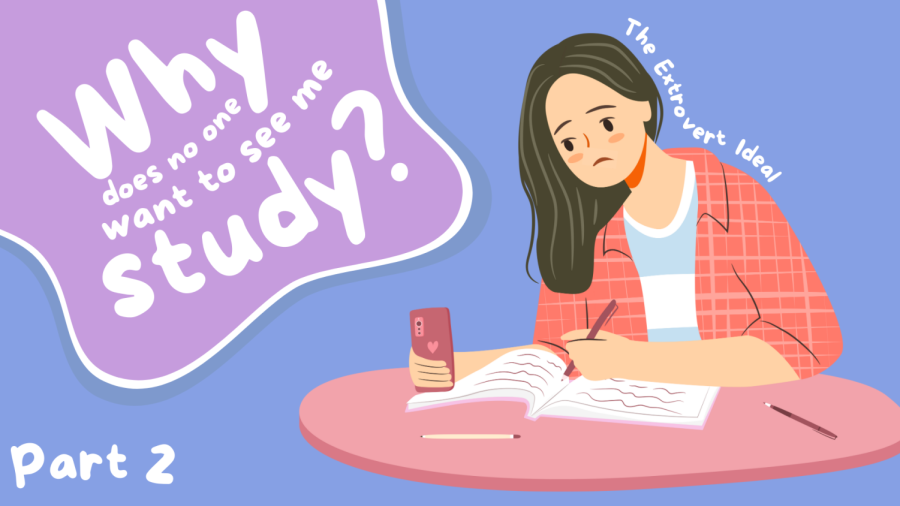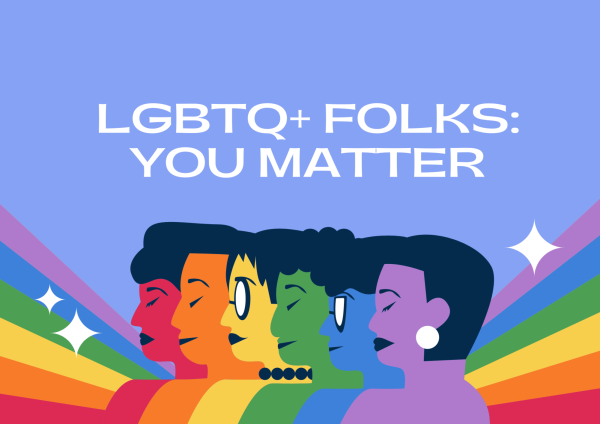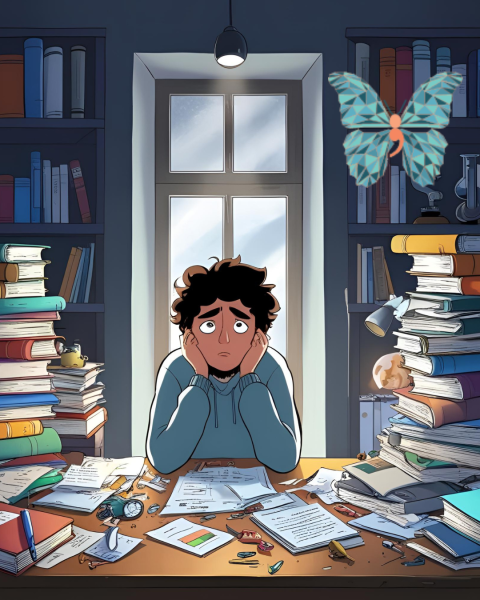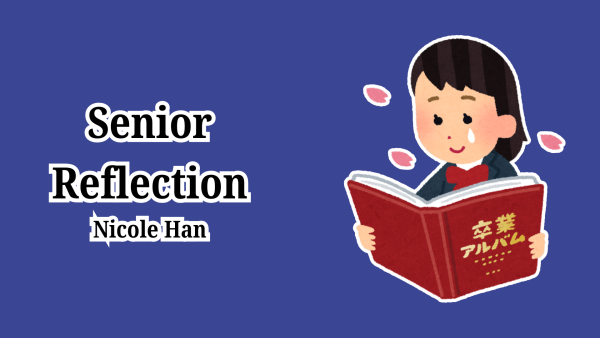Why does no one want to see me study? Part 2: The Extrovert Ideal
Senior AJ Gordon elaborates on the study culture she has faced in her time in high school.
In my first article of this two-part series, I touched on the stigma around Asian study culture and how, in its non-toxic light, better acknowledges the difficulty of balancing many obligations than Western ideas.
This article will focus on how being an introvert has affected my school experience and how our cultural preference for extroverts marginalizes students with different study needs.
A contributing factor I’ve noticed in particular to people’s disapproving response to my long study sessions is what Susan Cain labels “the Extrovert Ideal” of Western culture in her book, Quiet: The Power of Introverts in a World that Won’t Stop Talking. In her book, Susan Cain portrays the ‘Extrovert Ideal’ as the cultural tendency to associate extroverts with success, although research does not support this correlation. Cain outlines the origins of this notion in the West, how our institutions are designed for the comfort and personalities of extroverts, and how introverted tendencies of privacy, solitude, and autonomy are valuable in workplace environments.
Studying is largely an individual task. A student may receive collaborative assignments, have discussions with teachers to clarify the subject matter, and argue with friends over Biology concepts (not that I’ve ever done that…) (Editor’s note: She does in fact do that). Still, only a certain type of person can study well with other people or even with others around. It is ultimately up to the student to measure their own knowledge of a topic and be able to work through a problem set, questionnaire, or practice test, on their own considering that assessments are rarely group affairs.
I study much better on my own. I’m able to work at my own pace, decompress after a long day, and focus on the task in front of me. The idea of me struggling through my school work without any company is a great concern of my family members and peers. For me, it’s sometimes my favorite part of the day. Not out of a particular love for learning (sorry to all the colleges I applied to), but I find it hard to focus at school amidst my conversations with friends, class transitions, and just being around so many people for so long. In addition to being distracting, being around others can be overstimulating and leave me incredibly exhausted even with people whose company I enjoy.
Cain outlines the push for collaboration in schools in a Ted Talk. She explains how schools have now arranged desks in “pods” instead of rows and increased the number of group assignments students participate in. “Even in subjects like math and creative writing, which you think would depend on solo flights of thought, kids are now expected to act as committee members,” Cain says, “And for the kids who prefer to go off by themselves or just to work alone, those kids are seen as outliers often or, worse, as problem cases.” Cain also states that the majority of teachers report their ideal student as an extrovert even if they do not get better grades.
The way in which I managed to at least minimize student burnout in the senior year was to prioritize what I needed to do to get my school work. This included sitting out on a lot of social or extracurricular activities that I felt the pressure to balance last year, in order to spend the long hours studying that I needed. Having gotten my driver’s license last November, I was able to find the solitude and space I needed to study and learn effectively.
Our current approach to studying and learning has encouraged students to learn from one another, emphasized the importance of being well-rounded and engaging in non-academic activities, and allows for more open conversations regarding students’ social and mental health needs. Yet, it continues to hold students to high standards of success while disapproving of students’ sacrifices for their own success. Moreover, the school curriculum caters to a certain type of personality and thinker, limiting the potential and comfort of many students whose insight would enrich the school community.
Your donation will support the student journalists of Watkins Mill High School. Your contribution will allow us to purchase equipment and cover our annual website hosting costs.

Andrea “AJ” Gordon is a senior at Watkins Mill High School and Opinion Managing Editor for The Current. She is an IB Diploma student and is a part...













